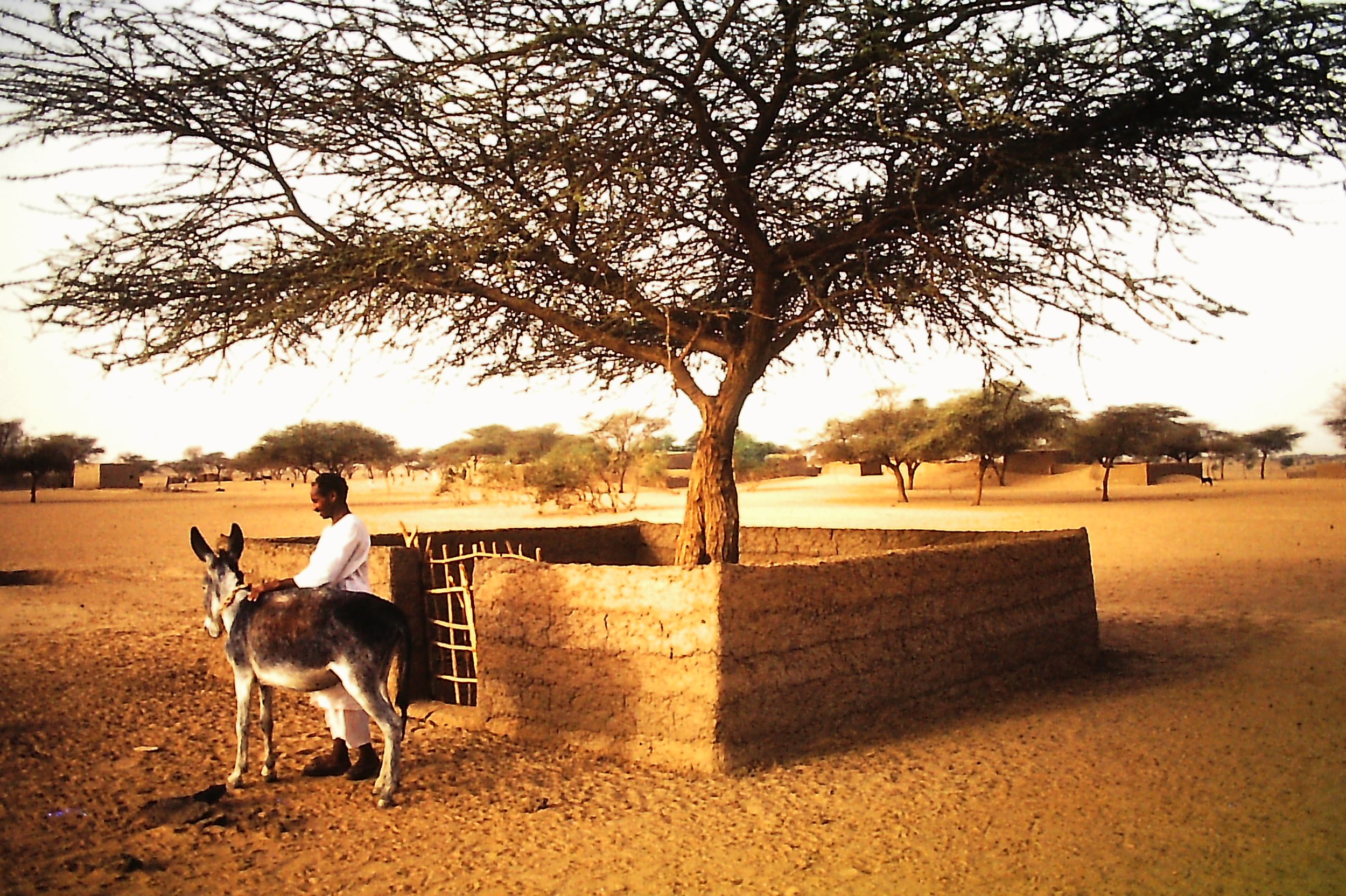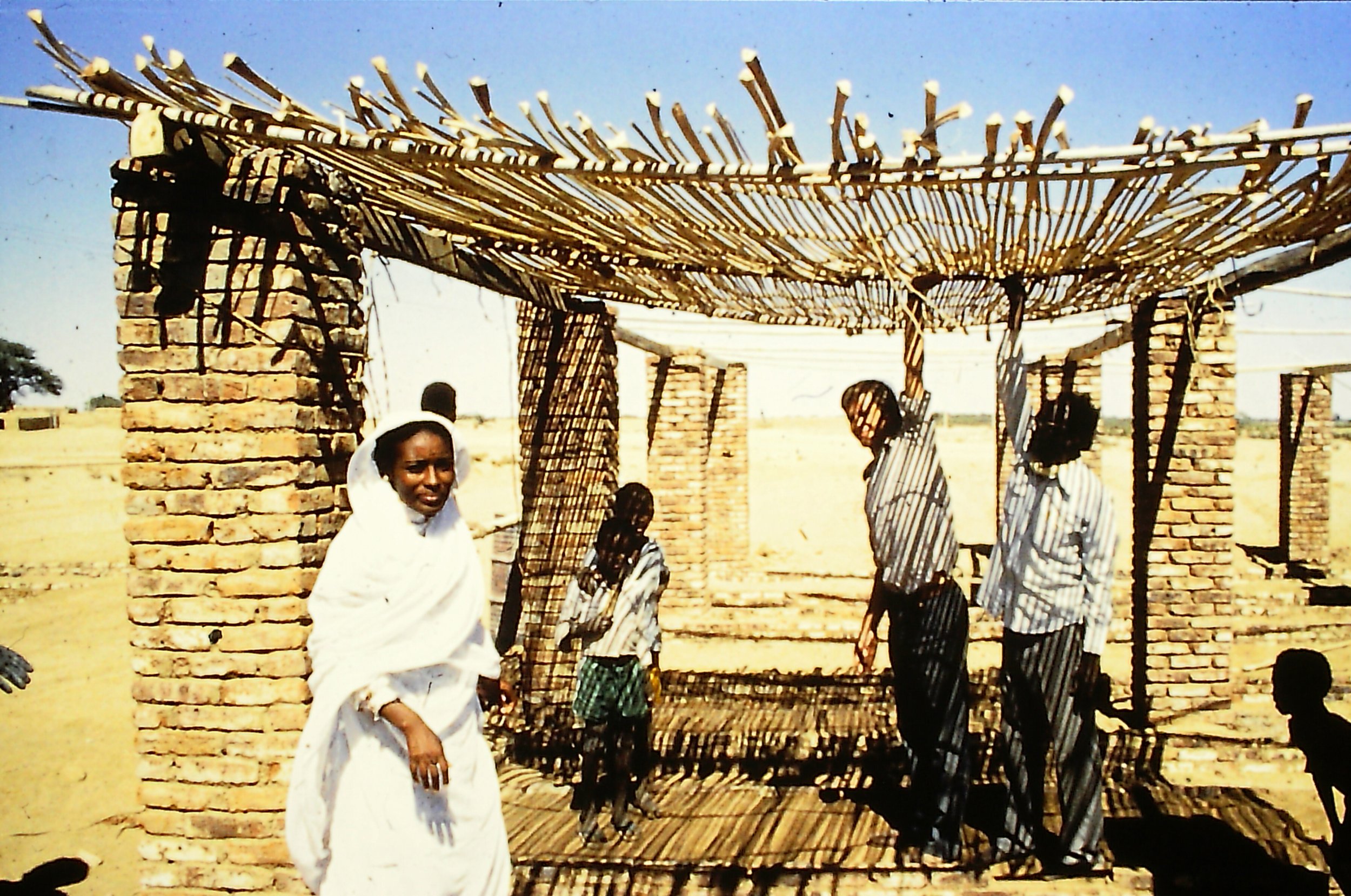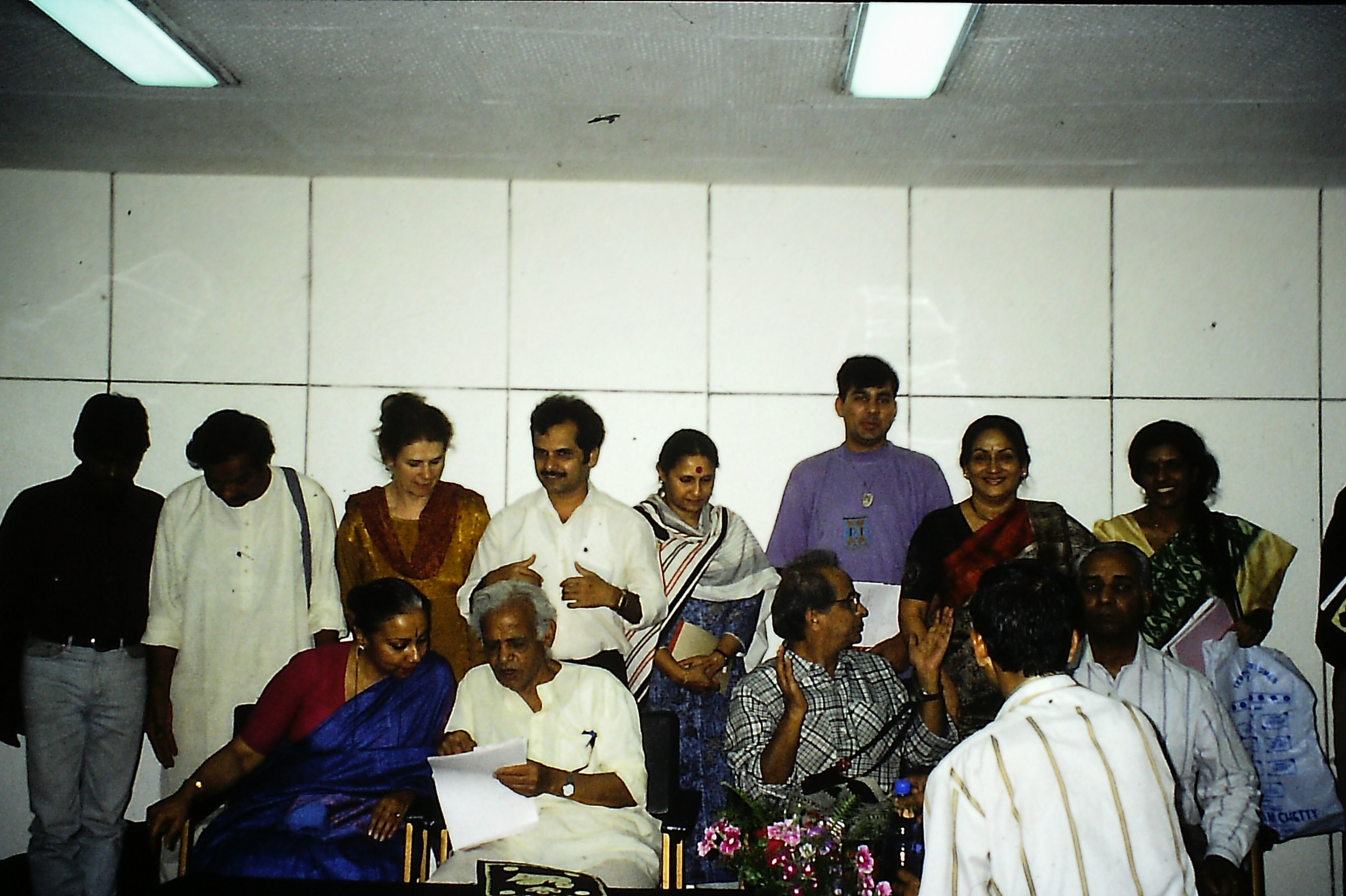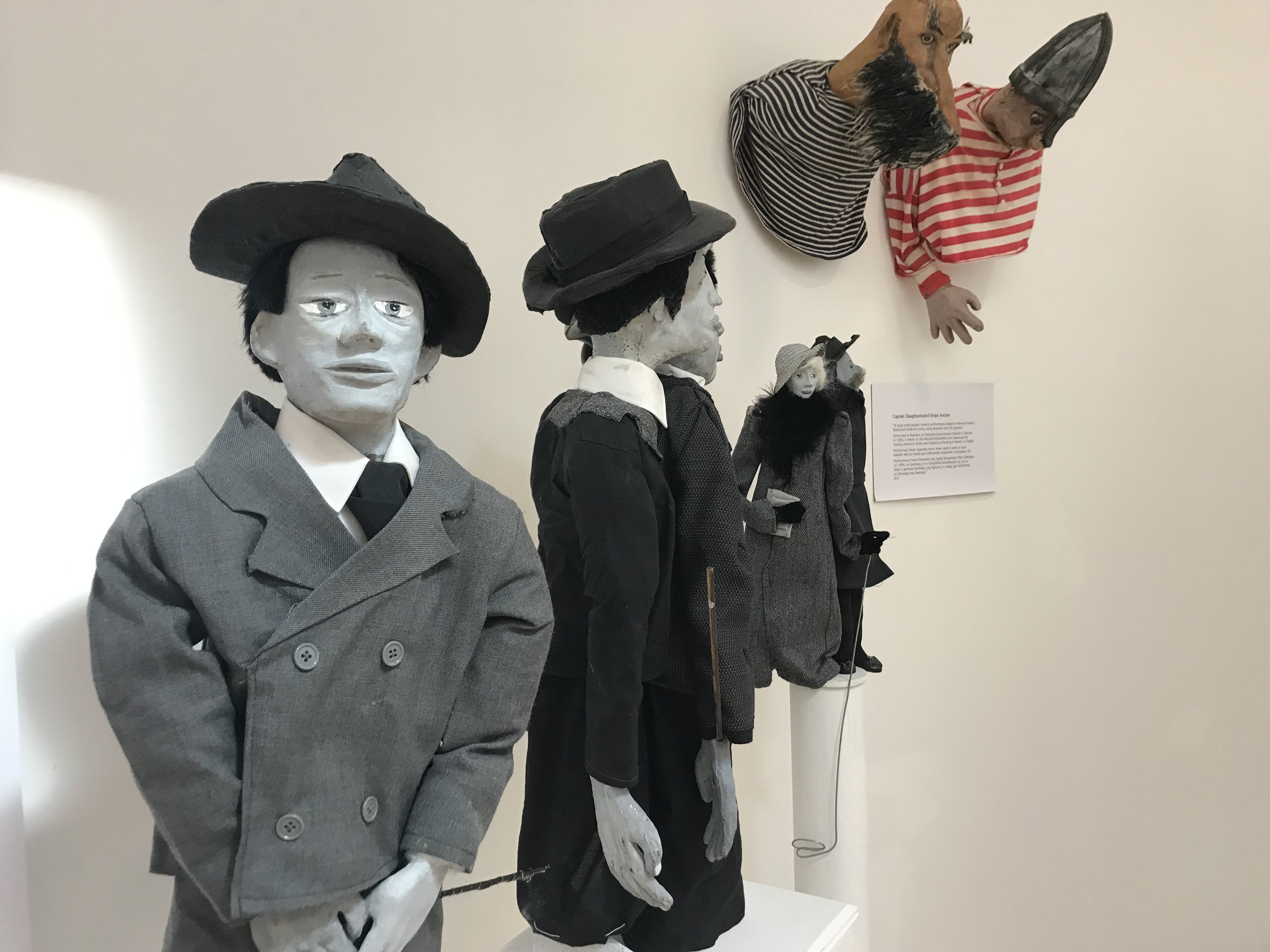2019 marked 40 years of puppetry spanning Ann Shrosbree’s and Bill Hamblett’s careers. From early work as Dandelion Puppets in 1979, through Arts and Development work in Africa, Asia and the Middle East to Small World Theatre and the present day.
Hands Up: defining 40 years of puppetry
An exhibition by Ann Shrosbree and Bill Hamblett told online through the original panels and images of the puppets.
Exhibition Panel 1
Our puppets are often re-purposed for other shows so displayed here are those that have survived storage in damp barns or re-purposing. They are kinetic objects from moving stories. We hope the exhibition gives a general sense of the work over the last 40 years.
In 1979 Ann wrote an ‘eco’ puppet play “Dora’s Dilemma”, about the interconnectedness of everything. Forming Dandelion Puppets with Bill we performed it throughout that summer to children at CAT, Machynlleth.
A realisation of the power of puppetry meant we felt a responsibility that whilst entertaining we should also communicate important environmental ideas. We toured festivals with a new puppet show “Who’s Crazy”, about energy use on planet earth from the perspective of a vegetable-based alien lifeform.
Green Deserts a small charity wanting to encourage tree planting in Sudan saw this show and asked Gimpal Galleries, London to sponsor a performance that took us overland to the desert in 1981. Based on characters in Nilotic Jaalyeen folk tales we created puppet characters that Sudanese foresters voiced in street performances in Ed Damer and Shendi, that attracted huge crowds.
We came home and continued to create new work performing in festivals and on beaches in Wales with shows like “The Giant of Cwm Cysglid” featuring an international giant who eats trees. Until in 1985 Sudan came knocking on our door again leading to international work in arts and development.
Over twenty-five years we worked with local artists, activists and communities in Kenya, Uganda, Tanzania, Zambia, Vietnam, China, Hong Kong, Syria, Nepal, India, Liberia and Wales. Using puppetry and participatory drama as a means for disadvantaged communities to make sense of information in a safe space and explore their own solutions to shared problems. Always also creating work here that brought stories home to share the reality of other people’s lives with our audiences.
Exhibition Panel 2
Sudan
Ali’s Dream
SOS Sahel in partnership with the Sudanese Forest Department, sponsored a social forestry project in 1985 in Nile Province, Sudan. We created a touring puppetry performance reflecting life in desert villages; including crocodiles in the Nile, tension between nomads and settled communities, family life in an arid landscape, donkeys, camels and a tree genie.
We recruited and trained talented young Sudanese men with a feel for puppetry to perform a series of comedic stories, with tree destroying goats and charcoal burners as the villains. I worked with Shadia El Amin Abbas to encourage women’s participation. Despite warnings this was a hopeless task the women’s aspect of the project was exceptionally successful, attracting the attention of the UN.
Over a million trees planted
Beneath the stars, after prayers and supper, huge audiences gathered often having walked for miles to see the show. In our 2 years in Sudan, 56 villages engaged with the social forestry project, creating tree nurseries and planting shelter belts to halt the march of desertification. When we returned to each village with different episodes, the puppet characters were greeted as old friends. The shows continued to develop, communicating about the benefits of trees over 14 years as the project grew and worked in different areas of Sudan.
Puppetry Legacy
At a UN forestry extension training in Khartoum, puppetry was voted to be the most effective medium for communication in rural Sudan. We were subsequently asked to train foresters from all over Sudan to use puppetry as an educational tool. Their work took them to schools and now there is a national puppetry competition in Sudan, often won by Shendi (where we were based!)
Back home we developed a show for schools about daily life in the desert (in contrast to media images of starving African babies). We cast new latex puppets from the Sudan moulds and ‘Shadows in the Desert’ toured throughout UK sponsored by OXFAM and CAFOD.
Exhibition Panel 3
Bringing Stories home
Human Rights
Kenya
Andrew Hutchinson, Education Officer for Save the Children commissioned us to create a show for UK schools about fundamental human rights to shelter, clean water and health care. Nuffield Foundation sponsored our active research in Kibera, an enormous slum city on the edge of Nairobi, where we worked with Kibera Family Centre for Parents of Disabled Children. These children were thought to be a curse and ashamed families often hid them. With the centre staff, we made a puppet show from low cost, local materials that they performed in the streets to explode the myths; lifting stigma about disability and showing that help was available.
In the Shadow of the City
“Still known as Dandelion Puppets we made a large scale puppet show with original music composed by Adrian Wagner that toured throughout UK during 1990 to 1992 performing in 180 schools. We built an African shanty town in school halls and introduced the struggles of a poor Kenyan community to achieve their basic Human Rights. After the show in Draperstown, Northern Ireland, we found some children were gently poking around at the bottom of the set. “Where’s the stream?” they asked (drinking dirty stream water had made a boy in the story ill). It was around this time, while eating chips on the pier in Ramsgate, we decided to change our name to Small World Theatre”.
Ann Shrosbree
“In the performance President Gathonga & Mr Grey are seen at the top of two tower blocks above the shanty town set. Mr Grey, international financier, a shady character passes money (along a disguised rail) to Mr Gathonga the corrupt president. The country needs money for a failing health system. Drugs not approved for use are being passed on to him. Money passes back to Mr Grey.
In the shanty town below characters appear in different sizes. Big puppets appear close to the audience, medium-sized in mid-set and very small puppets are seen at the back in a train station in front of the shadow screen. This scale-change gives perspective.
Both puppets are cast from clay positives into negative plaster moulds. The liquid latex is poured into the moulds and positives emerge using embedded silkscreen paint for colour. With cloth, fake fur and sheep’s wool for dressing.”
Bill Hamblett.
Exhibition Panel 4
Rights of the Child
Uganda
“A collaboration with The British Council in Kampala led to ‘These Rights are Mine’ a performance about the Rights of the Child developed with six secondary schools in Kampala. The show toured widely and culminated in a performance at the Ugandan National Theatre. The young people focused on the rights that were most important to them; child soldiers and sexual abuse within families featured in the play. We invited government officials and charities to the performance, that had a strong impact on the audience, one of whom said “Our children are speaking the truth about things we hide, we must learn from them.”
While in Uganda we met a group of AIDS orphans who had made a puppet show to warn other children about HIV/ AIDS so they could protect their parents. British Council and an Irish charity GOAL paid for us to return and work with these young people to teach them how to make durable puppets and performances that would communicate their concerns effectively. Together we made a giant woman to attract a crowd and smaller foam puppets for a hilarious street show that busted myths about HIV and AIDS. Sadly, most of those young people have since died.
Other projects in Africa include ‘Your Vote Counts’ with British Council Tanzania working with Tanzanian actors, researching and creating street performances about the democratic process to go to poor communities. Also, in Kigoma Tanzania we worked with a local NGO to develop a project about Women’s Reproductive Rights using forum theatre methods. I worked as a consultant in participatory drama for British Council Zambia and for a local NGO in Liberia.”
Ann Shrosbree.
Refugees
“A second SCF commission to create better understanding about refugees, led to research with refugees in Britain and in the Hong Kong refugee camps. We made shadow puppet stories with children and took them for short walks outside the harsh razor wire and concrete environment when we could get permission. We gathered stories from their families who were all living in impossibly cramped conditions.
In Ho Chi Minh City in Vietnam, people were very keen to work with us. We spent a hectic month cycling to work in with ten different groups; teachers of children disabled by chemical warfare, Deaf children, orphaned street children and former prostitutes and drug abusers released from re-education. We created a street performance about HIV/ AIDS. We made appropriate puppet shows with each group and organised an event in one of the orphanages, where each group performed. The government’s Head of Children for South Vietnam remarked “the capitalists are working harder than the communists.”
A collaboration with the Hanoi Water Puppeteers led to a ‘dry’ performance under a thatched teak longhouse, with the Zao settled nomads up in the far north of the country.
Coming home inspired, we created ‘Moving’, a story of two Vietnamese children’s journey to the UK. The story opens with a Vietnamese dragon lying down and turning into the landscape of Vietnam. People farm on the dragon’s flanks, planting rice and ploughing with water buffalo. Then war comes, sounds of explosions with a rain of smoking shoes hitting the stage. Nguyen flees with his family on the first step of a dangerous journey across the South China Sea seeking safety with thousands of other refugees. Not everyone will get to sanctuary in another country. Pirates attack their boat and people are taken, but Nén and Tue the child protagonists make it to a refugee camp in Hong Kong and eventually to London.
Adrian Wagner composed an emotional soundtrack that formed a strong element of the performance. ‘Moving’ toured schools and community venues 1993 – 1995 UK-wide, with accompanying drama workshops exploring how it feels to be a stranger. We were involved in developing the first Refugee Week.
Other work with refugee issues includes ‘Diogel?/ Safe?’ 2001- 2004, working through drama with host communities in Wales to build understanding of why people are forced to flee and may become your neighbours.
Small World Theatre partnered Winding Snake Productions to make ‘Noddfa’ 2017 a short, animated film. Small World Theatre used participatory drama methods working with refugees from The Oasis Centre, Cardiff as a means to tell their traumatic stories. NODDFA was screened by WOW Film Festival and DocYourWorld 2017 in Chicago. It has now been entered into other short film festivals.”
Ann Shrosbree.
Exhibition Panel 5
Link to the present
One Way Street
“In 2013 we created a black and white puppet thriller in the film noir genre. The gangster puppets on display were repurposed from the thugs in a Kenyan shanty town and the charcoal burners from Sudan. The script was something I have wanted to write for years inspired by my childhood in California. Things fell into place working with artist Toby Downing and performer Debbie Howlett, to tour a show supported by Arts Council Wales.
All the work shown up to this point was made by Ann and I working as a partnership. We collaborated with other artists occasionally such as our first venture into animation with artists Sean Vicary and Steve Knight in ‘Mufaro’ (later with ‘One Way Street’ and ‘Lightning Path’). Since officially becoming Small World Theatre in 1996, our team has grown and so have our puppets and projects.
Collaboration is key to the success of new work as we continue with the same ethos into an exciting future. We leave you with a selection of more recent work and big thanks and appreciation to our Board of Trustees, creative staff and volunteers.”
Bill Hamblett.
Captain Slaughterboard Drops Anchor
A large-scale puppet theatre performance based on Mervyn Peake’s illustrated children’s story using shadows and 3D puppets.
Performed in Mandarin at Shanghai International Children’s Festival in 1994, in Welsh at the National Eisteddfod and subsequently touring venues in Wales and England performing in Welsh or English.
Contact
Ann and Bill are our founding directors and their knowledge and experience is at the heart of the organisation. To speak to Ann or Bill about their work oversees, please email Hélène.
















